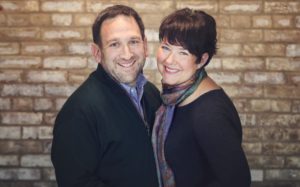When Coronavirus hit California (where we are spending this spring) Dan wanted to come home. Cassie didn’t.
Dan was scared being so far from home, our support network and Cassie’s doctors. He worried incessantly about what would happen if one of us, especially Cassie, got really sick. More than anything else he feared her being in a hospital and possible dying alone.
Cassie on the other hand actually felt more relaxed than she had at any point since her diagnosis. Napa is her happy place. She was sleeping better, walking more and, as she pointed out it’s not like we would be seeing people if we were home. She has spent a lot of time contemplating her own mortality since her metastatic breast cancer diagnosis which probably explains why her fear was less pronounced than Dan’s.
So do we leave or do we stay? Does Dan get what he wants or does Cassie? That was our conundrum in early March.
We decided to give it a few days on the well-learned theory of not making major decisions impulsively (been there, done that). Yet we remained at loggerheads. Dan grew even more anxious. Cassie more settled.
How to decide?
Like all long-married couples we’ve had our share of disagreements and we’ve learned how to work through them. We can usually find a compromise or talking it out leads to one of us changing our minds or deciding that whatever it is actually doesn’t matter that much to them.
Then Cassie got sick and her diagnosis has complicated our decision-making process. Dan’s initial tendency post-diagnosis was to just agree or cede to Cassie’s wishes/opinions but that turned out not to be such a good idea because it drove her nuts! Cassie doesn’t want every decision to revolve around her or her situation. She doesn’t want the pressure of always having to be the decider or the sense that everyone (Dan, family, friends) is constantly deferring to her wishes. She doesn’t always want to be on the spot for making a choice or offering her opinion first. She craves a return to some sort of normalcy in our life including how decisions get made. And of course this all makes sense. It’s not good for our relationship for Cassie’s opinion to always dominate so we need to find better ways of balancing her cancer and our decisions.
This played out in real time with some friends recently (pre-stay at home order) when we had a full day planned and had to decide whether to curtail it some. We all instinctively turned to Cassie and asked her what she wanted to do? But she helped guide us through an alternative approach. She gently said “I don’t want this to be all about me so why don’t we all share what we are thinking and then we can decide.” So we did and we did. It was still pretty stilted because once the idea of stopping sooner or resting more is “out there” it can easily take on a life of its own but we still tried to come to a decision as a group without either automatically deferring to Cassie or centering her situation above all else. For Dan it was a valuable lesson in navigating choices with cancer and trying to keep decision-making as normal as possible.
It isn’t easy because even while craving a return to normalcy in our lives we both recognize that nothing will ever be normal again. Cassie does have metastatic breast cancer — full stop. Everything has changed. And that was before Coronavius hit. Now “normal” feels even more like a mirage. We are all going to have to adjust to a new normal and that includes figuring out how to make decisions through the lens of both MBC and an ongoing pandemic.
For us, that has meant trying to distinguish between big decisions and the many more routine choices that we have to make all the time. A potential (maybe obvious?) guideline that we are now playing with is: The bigger the decision the more it’s informed by Cassie’s cancer. The converse is also true. So for the countless daily, weekly or social decisions that arise we will attempt to treat them as “normally” as possible without centering Cassie’s diagnosis. But for bigger decisions it will be more of a factor.
That’s how we ultimately decided to stay in California. One of us was going to be disappointed by the decision. If we picked up and went home it would be Cassie. If we stayed – Dan. In this case, because we were already here and because we don’t know how Cassie’s illness will progress or whether we will ever make it back we decided to stay. Looking at it through that lens felt right for both of us and Dan has actually been able to let go of a lot of his anxiety simply by seeing how much being here means to Cassie. It was a good choice and it taught us a lot about the challenges of making decisions with cancer.

Ahhhhh. Keep the InstaGram pics coming. They are SO HAPPY!